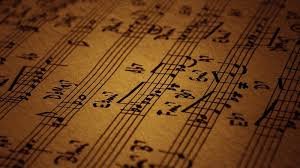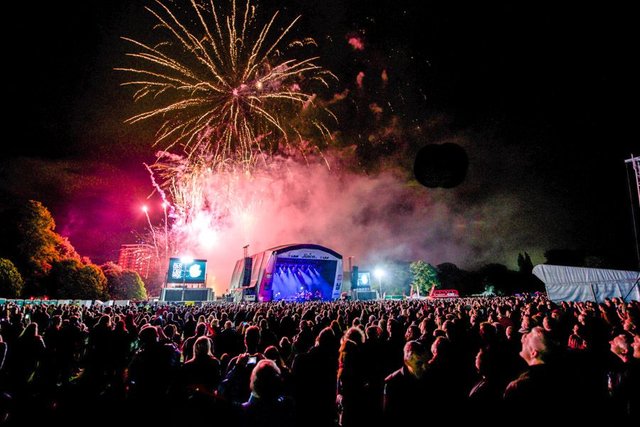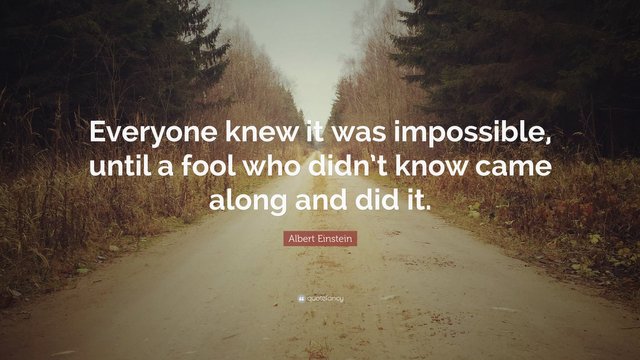The importance of having a library as an EDM producer willing to succeed

MUSIC HISTORY / GENERALITIES

In this day and age, producing electronic music is more accessible than ever to anyone having:
-an Internet connection
-a few hundreds bucks to invest
-enough patience to learn the techniques linked with applied music theory to electronic music production.
HOW TO SUCCEED IN A COMPLEX MUSIC INDUSTRY

So what makes the difference between all these producers ? It is precisely the same thing as before: originality. Maybe you can download any track you want for free through youtube and mp3 converters, but this means you have more possibilities. The problematic is still the same: managing to use them well, in your own way, in order to get something out of it that is what mirrors your mind, and that thing, that could be called your musical footprint in a way, can reach full recognition only thanks to 2 important conditions (the fact there are only 2 doesn't mean it is easy to obtain, though it obviously shows if your ultimate quest is only success, recognition and bringing something new to the music world, then there are not too many secrets, it's simple and only about focusing on those 2 goals):
-quality in the production as a whole
-originality
Quality means you have mastered the main techniques of electronic music production, that are linked with filtering, compression for example. All in all, it means you can handle the technical aspects of your track.
Originality means you're bringing something new, you're daring to take a "risk" compared with what has been done before. But there is clearly a gap between taking a risk and being incoherent and mediocre. That's where quality comes. That's why those 2 aspects are interconnected. You can take a risk, but it has to be a coherent production. What is coherent ? This is where music theory comes. Many people tend to overlook it; though it is a fundamental aspect linked with a proper understanding of music's roots. It's as if you were willing to travel abroad but don't want to learn a new language, or as if you were willing to implement computer programs without taking enough time to learn the basics of computer programming: totally incoherent, and given the fact a lack of coherence induces lack of quality, you definitely can't overlook music theory.
As a result, I'm sharing 2 interesting possibilities for you to learn this aspect fast: one is a complete music theory course, just take it step by step:
This one is a more summarized version:
The point of this article was to underline the importance of your own library. I came to this conclusion because it seems every single sound that is either built-in inside your DAW (Digital Audio Workstation) has been produced by someone who has more experience than you in that field, and you can use them but don't trust that too much, especially if you're willing to get your own musical identity. It's all about getting something new then. Don't take any sound for granted. Even if a sound fits your style, try to rework it, in terms of frequence for example, and other parameters, so that it ends up being unique and mirroring your own mind and nothing else.
Here lies the importance of developing one's own library. It's a fundamental step in order to produce originality. Even if you're terrific at producing melodies or producing beats for example, still the "base sound" with which you're gonna play that melody or produce that beat has to be something original. That's where your library plays its decisive role in the music industry game. You literally have to produce as much effort, even more, in developing that library.

What are the possibilities to add to your library ? Here I'm going to summarize all the possibilities.
-sample packs, presets, VSTs:
Look for them online. Most of them are free. Here is an example, a terrific site full of free samples and presets.
https://soundpacks.com/free-sound-packs/incredible-chords-vol-1/
A VST is basically a virtual machine that makes it possible for you to set many parameters linked with sound shaping, in order to produce a huge amount of different sounds. Most of them are already set. In a way, it's a library of presets then. Something like Sylenth has a free trial version that you can test, then buy for a reasonable price. Sylenth is something I appreciate a lot. But it's only because it's linked with my musical style that is close to progressive house. You have to do your own research if you're really into it to fully know what fits you best. There are many free VSTs as well. Don't take what anyone says for granted. Just try to learn the methods to guide you through your own way. Learning to learn is the best thing to take really.
-tracks you already have downloaded (or that you're willing to download)
This is another key point. I should have even put it earlier. Why ? Because I've just realized I had about 50 hours or more of non-stop music tracks (all I downloaded through the years, in almost 15 years now). I've had to put some order in that as well, classifying by keys, BPM for example as it's more convenient for a music producer than by "genre". Every single track can be analyzed to its bone, dissected, in order to separate all the sounds and effects used (basslines, vocals, synths, melodies, beats...). There could always be something you want to take from it, even if it's a 5-second sample. That's precisely where the effort demanded is important. But this task is very important as well. All in all, it's about building your own originality. One of its main steps is done through this stage.
-movies, series, or any other type of videos or audios you find online (youtube,...)
This point is essential as well. Sampling is not only about music tracks. It can concern any type of sound you happen to hear anywhere. If you feel you can use it well inside a track, don't hesitate and go sample; there are many tools in order to analyze and handle this type of data, one of them being Audacity (a free DAW that I mentioned in an article earlier:
https://steemit.com/music/@loonyfool/a-useful-tool-to-produce-music-audacity ).
A good example linked with sampling something from movies can be seen here:
-any sound you hear in real life:
If you have the right tools to record it then analyze it and handle it fully, then don't hesitate as well, it can be anything, from a dog barking to a car's or a bird's noise. Creativity has no limits. Here is a good illustration as well:
Keep on learning until you make it ! Even then you shouldn't stop.
